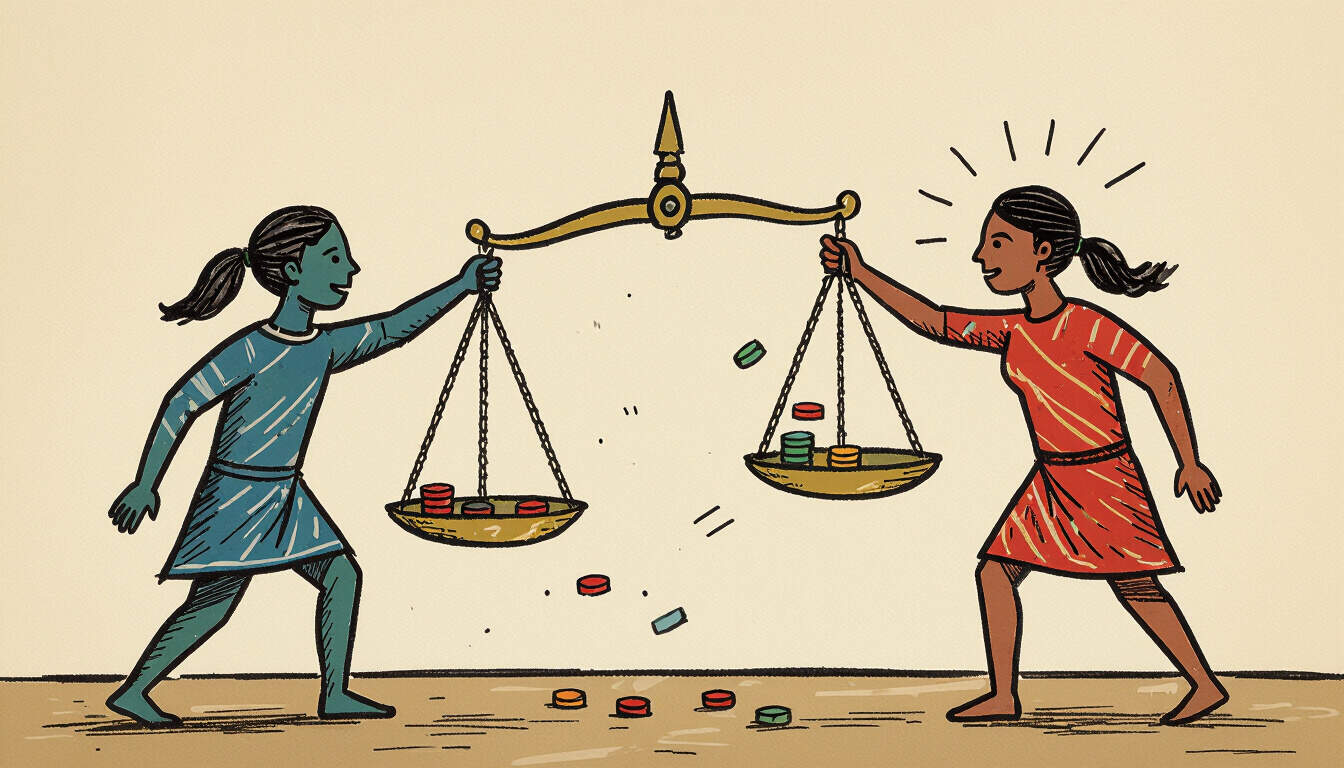The Concept of Zero-Sum Games and Its Practical Applications
 by Verner Mayer
by Verner Mayer
Zero-sum games highlight scenarios where one participant's gain directly means another's loss, a key idea in decision-making and strategy. This mental model offers insights into business dealings, psychological behaviors, and everyday choices, helping individuals make smarter decisions.

Zero-sum games form a fundamental part of strategic thinking, often appearing in various fields from economics to personal interactions. This model describes situations where the total resources remain constant, meaning any advantage for one side equals a disadvantage for another. For instance, in a simple card game, the points one player wins are exactly what the opponent loses.
In business, zero-sum games can influence negotiations and competitive markets. Companies might compete for a fixed share of customers, where gaining market dominance means rivals suffer. This perspective encourages leaders to assess whether a conflict truly operates under these rules or if opportunities for mutual benefit exist. By recognizing such dynamics, professionals can decide when to push aggressively or seek alliances.
Psychologically, this concept affects how people perceive fairness and cooperation. Individuals may view relationships through a lens where resources like attention or affection are limited, leading to behaviors that prioritize self-interest. Studies in cognitive development show that children as young as five begin to grasp these ideas during play, influencing their social skills and problem-solving abilities.
To apply this model effectively, consider everyday examples. A job interview process can be seen as a zero-sum scenario, with only one candidate selected from a pool. Here, preparation focuses on outperforming others rather than collaborating, though awareness of the model might prompt exploring non-competitive paths, like networking for future roles.
Key Characteristics of Zero-Sum Games
- Fixed resources: The overall amount available does not change.
- Direct opposition: Outcomes are inversely related.
- Clear winners and losers: Results are binary, with no middle ground.
These traits make the model useful for analyzing conflicts. In international relations, trade disputes often follow zero-sum patterns, where one nation's economic gains might seem to come at another's expense. Yet, deeper analysis can reveal that many situations are not purely zero-sum, opening doors to innovative solutions.
For cognitive development, engaging with games that embody this principle can enhance critical thinking. Activities like chess or sports teach participants to anticipate moves and weigh outcomes, fostering skills in planning and adaptability. Professionals in fields such as law or finance regularly use this framework to evaluate risks, ensuring decisions align with long-term goals.
One practical way to incorporate this into daily life is through decision frameworks. When facing a disagreement, ask if the issue involves finite resources. If so, strategies might include setting boundaries or finding alternatives that expand the pie, turning a potential zero-sum into something more balanced.
In education, teachers can introduce this concept to help students understand economic principles or ethical dilemmas. By discussing historical events, like resource wars, learners gain tools for analyzing human behavior and societal structures.
Ultimately, while zero-sum games highlight competition's role, they also underscore the value of perspective. Recognizing when to engage fully and when to step back can lead to better personal and professional outcomes, making this mental model a valuable asset for growth and learning.
